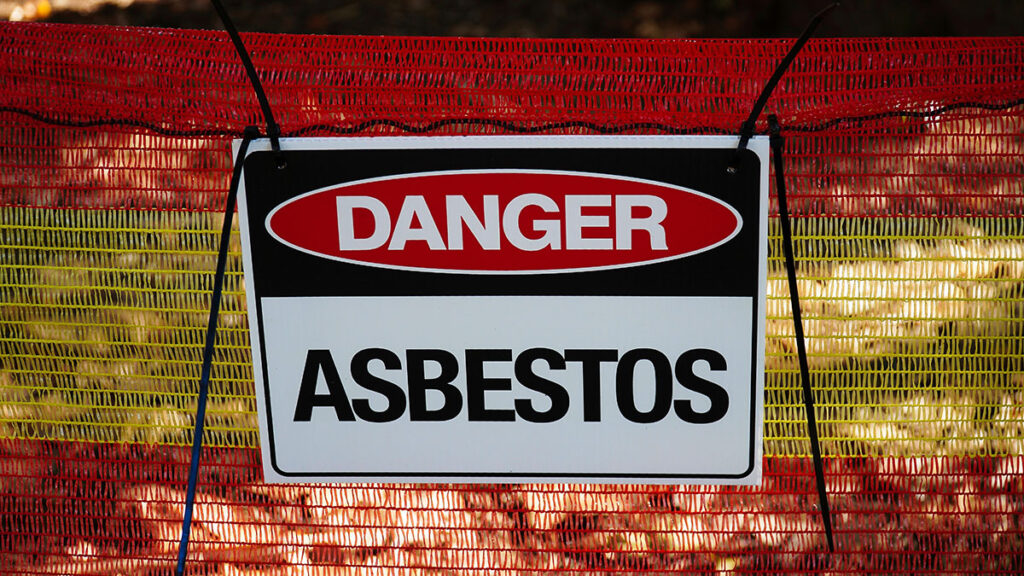Historical Use Of Asbestos
Asbestos was widely used in various industries, including construction, due to its strength and heat resistance. From the early 1900s until the late 20th century, it was a common material in many products, including flooring. Its popularity declined after the health risks became known, particularly in the 1980s.
Types Of Flooring Materials Containing Asbestos
Several types of flooring materials may contain asbestos, including:
- Vinyl floor tiles: Often used in homes and commercial buildings.
- Linoleum: A natural product that sometimes included asbestos for added durability.
- Cement tiles: Used in various settings, including schools and military bases.
- Carpet backing: Some carpets were manufactured with asbestos-containing materials.
Health Risks Associated With Asbestos In Flooring
Exposure to asbestos can lead to serious health issues. When flooring materials containing asbestos are disturbed, tiny fibers can become airborne. Inhaling these fibers can cause:
- Asbestosis: A chronic lung disease.
- Lung cancer: A serious condition that can develop over time.
- Mesothelioma: A rare cancer linked directly to asbestos exposure.
Understanding the risks associated with asbestos in flooring is crucial, especially for those who may have been exposed in military or construction settings.
Veterans’ Exposure To Asbestos In Flooring
Common Military Occupations At Risk
Many veterans were exposed to asbestos in various military roles. Some of the most affected occupations include:
- Aircraft Handlers: Often worked in environments with asbestos insulation.
- Mechanics: This includes aircraft, vehicle, and environmental systems mechanics who handled materials containing asbestos.
- Fire Control Technicians: Frequently worked in areas with high asbestos content.
- Metalsmiths: Engaged in tasks that involved asbestos materials.
Locations Of Asbestos Exposure
Veterans encountered asbestos in numerous locations, including:
- Barracks: Many military buildings contained asbestos in flooring and insulation.
- Shipyards: Particularly for Navy and Coast Guard members, where asbestos was prevalent in ships and equipment.
- Training Facilities: Areas where service members trained often had asbestos in the flooring and walls.
Indirect Exposure Risks For Veterans
Indirect exposure to asbestos is a significant concern. This can happen when:
- Family Members: Veterans may unknowingly bring asbestos fibers home on their clothing or skin, exposing their loved ones.
- Shared Spaces: Areas where veterans lived or worked could have residual asbestos dust, posing risks to others.
Understanding these exposure risks is crucial for veterans, especially considering the serious health implications associated with asbestos exposure. The significant asbestos exposure faced by U.S. military veterans from the 1930s to the early 1980s has led to various health issues, including mesothelioma. It is essential for veterans to be aware of their exposure history and seek appropriate medical advice and support.
Health Implications Of Asbestos Exposure
Asbestos-Related Diseases
Asbestos exposure can lead to several serious health issues, including:
- Mesothelioma: A rare cancer that affects the lining of the lungs, abdomen, or heart.
- Lung Cancer: A common cancer linked to asbestos exposure, especially among smokers.
- Asbestosis: A chronic lung disease caused by inhaling asbestos fibers, leading to scarring of lung tissue.
Symptoms Of Asbestos Exposure
Individuals exposed to asbestos may experience various symptoms, which can take years to appear. Common symptoms include:
- Persistent cough
- Shortness of breath
- Chest pain
- Fatigue
- Unexplained weight loss
Long-Term Health Effects
The long-term effects of asbestos exposure can be severe and life-threatening. Some key points include:
- Latency Period: Symptoms may not appear until 20-50 years after exposure.
- Increased Risk: Veterans exposed to asbestos are at a higher risk for developing serious diseases, including mesothelioma and lung cancer.
- Quality of Life: Asbestos-related diseases can significantly impact the quality of life, leading to chronic pain and disability.
Veterans who suspect they have been exposed to asbestos should seek medical advice and consider monitoring their health closely. For more information on the risks associated with asbestos exposure in the military, visit this resource.
Legal Rights And Benefits For Veterans
Compensation For Asbestos-Related Illnesses
Veterans diagnosed with illnesses related to asbestos exposure, such as mesothelioma while serving in the Navy, have specific rights and benefits available to them. These include:
- Disability Compensation: Veterans can receive monthly, tax-free payments if they are diagnosed with mesothelioma due to their service.
- Special Monthly Compensation (SMC): Additional payments may be available for veterans with special needs.
- Dependency and Indemnity Compensation (DIC): Surviving family members of veterans who passed away from asbestos-related diseases can receive monthly benefits.
- Health Care: Access to medical treatment through the VA, often at low or no cost.
Filing Claims With The VA
To receive these mesothelioma veterans benefits, veterans must file a claim with the Department of Veterans Affairs (VA). The process includes:
- Gathering Documentation: Veterans need to provide proof of service, a medical diagnosis, and details about their exposure to asbestos.
- Submitting the Claim: Claims can be filed online, in person, or by mail.
- Awaiting Approval: The VA will review the claim and notify the veteran of the decision.
Legal Action Against Manufacturers
If VA benefits are insufficient, veterans may also pursue legal action against companies that produced or used asbestos. This can include:
- Filing Lawsuits: Veterans can seek compensation through lawsuits against manufacturers who knowingly exposed them to asbestos.
- Asbestos Trust Funds: Many companies that used asbestos have set up trust funds to compensate victims.
- No Impact on VA Benefits: Taking legal action does not affect a veteran’s eligibility for VA benefits.
Veterans should be aware that they make up 30% of mesothelioma cases, despite being only 7% of the population. This highlights the significant risk they face due to asbestos exposure during their service. Legal assistance can be crucial in navigating these claims and ensuring veterans receive the compensation they deserve.
Preventive Measures And Safety Guidelines
Identifying Asbestos In Flooring
Recognizing asbestos in flooring is crucial for safety. Here are some tips:
- Check the age of the flooring: If it was installed before the 1980s, it may contain asbestos.
- Look for specific materials: Vinyl tiles, linoleum, and some adhesives often had asbestos.
- Consult professionals: If unsure, hire a certified inspector to test for asbestos.
Safe Removal Practices
If asbestos is found, safe removal is essential. Follow these guidelines:
- Do not disturb the material: Avoid sanding, cutting, or scraping.
- Hire licensed professionals: Asbestos removal should only be done by trained experts.
- Use protective gear: If removal is necessary, ensure that workers wear appropriate safety equipment.
Regulations Surrounding Asbestos
Understanding the laws about asbestos is important. Key points include:
- Follow local regulations: Each state may have different rules regarding asbestos handling.
- Report findings: If asbestos is discovered, it may need to be reported to local health authorities.
- Stay informed: Regularly check for updates on asbestos regulations to ensure compliance.
Resources For Affected Veterans
Support Groups And Organizations
Veterans facing health issues due to asbestos exposure can find comfort and assistance through various support groups and organizations. These groups provide a platform for sharing experiences and receiving emotional support. Some notable organizations include:
- Mesothelioma Guide: This organization offers essential information for veterans diagnosed with mesothelioma, a cancer caused by asbestos exposure. They provide resources on risks, symptoms, treatment options, and VA benefits available to affected veterans.
- Veterans of Foreign Wars (VFW): The VFW offers support and advocacy for veterans, including those affected by asbestos-related illnesses.
- American Legion: This organization provides resources and support for veterans, including information on health issues related to military service.
Medical Assistance Programs
Veterans can access various medical assistance programs to help manage their health conditions related to asbestos exposure. These programs may include:
- VA Healthcare: Eligible veterans can receive medical care through the VA, which includes treatment for asbestos-related diseases.
- Compassionate Care Programs: Some organizations offer financial assistance for medical treatments and therapies for veterans suffering from asbestos-related illnesses.
Legal Resources
Veterans may also need legal assistance to navigate claims related to asbestos exposure. Resources include:
- VA-accredited Claims Agents: These professionals can help veterans file claims for benefits related to asbestos exposure.
- Legal Aid Organizations: Many non-profit organizations provide free or low-cost legal services to veterans seeking compensation for asbestos-related health issues.
- Personal Injury Attorneys: Veterans can consult with attorneys who specialize in asbestos litigation to explore their options for legal recourse against manufacturers of asbestos-containing products.


Comments are closed.